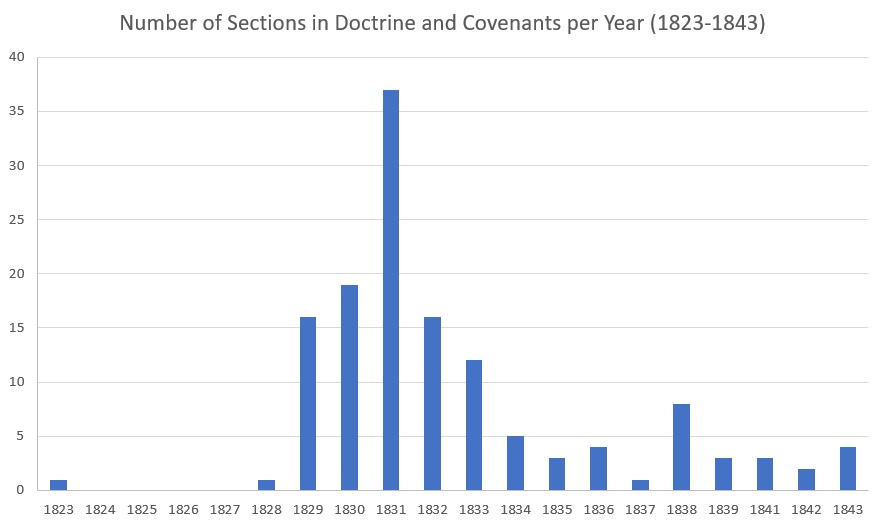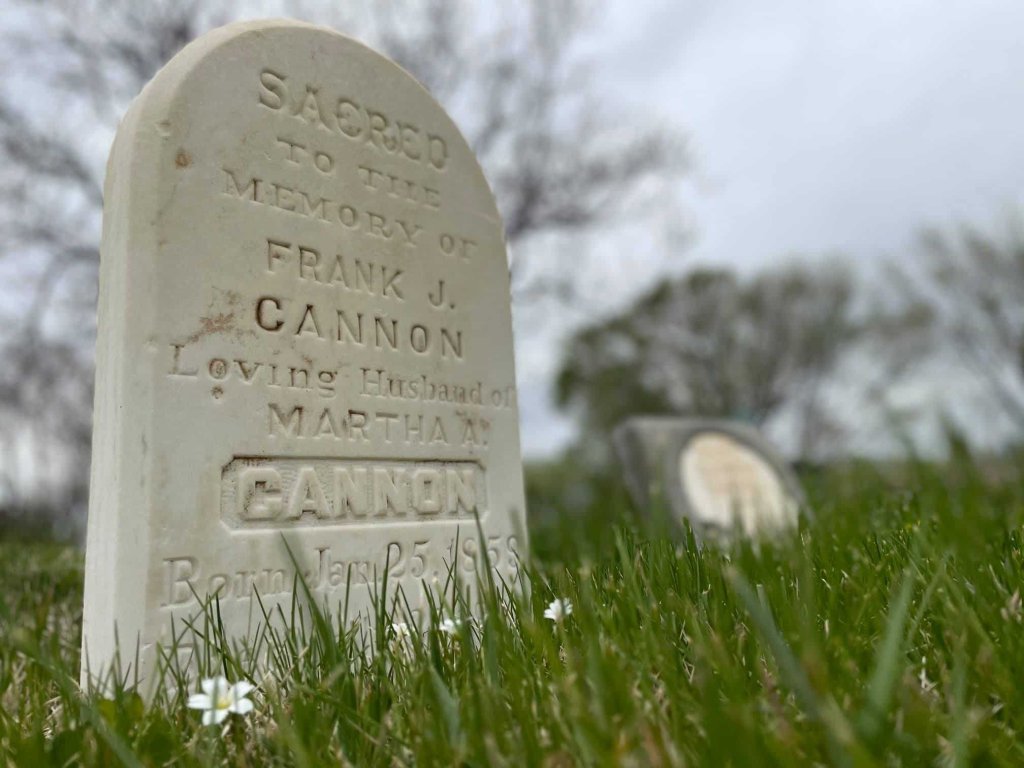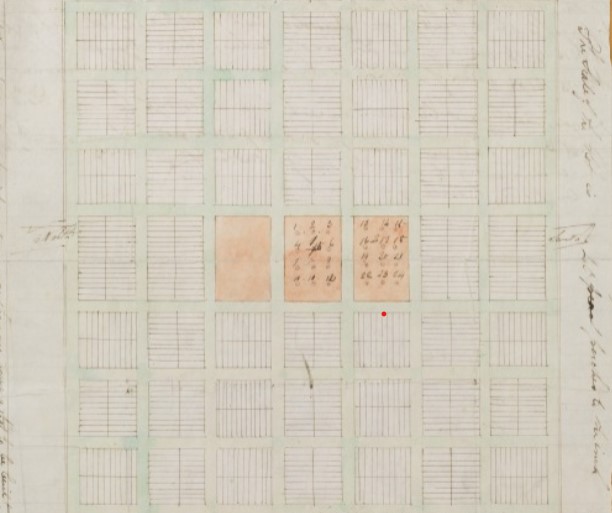Category: Church History
-
“There is never but one on the earth at a time”
Polygamy was one of the most divisive and explosive policies that Joseph Smith ever embraced. In many ways, it was what led to Joseph Smith’s death. He knew that it would be a cause of contention, both within the Church of Jesus Christ of Latter-day Saints and with those who were not members, and he…
-
“That they may bear the souls of men”
My wife is 37 weeks pregnant, and she is ready to be done. She’s started writing down a list of reasons she doesn’t enjoy pregnancy for me to use in reminding her next time we start thinking about having another child. She has also assured me that if creating spirit children in the next life…
-
Brittany Chapman Nash on Polygamy
We’re coming up on one of the most dreaded lessons of the Sunday School cycle—no, not reviewing the law of chastity with teenagers, the lesson that includes D&C 132 (the revelation on plural marriage). Polygamy is a topic in the Church that is uncomfortable, troubling and, at times, painful to discuss. Recently, however, the Church…
-
“This ordinance belongeth to my house”
Throughout this year, I’ve talked about the development of temple doctrine as a braiding of strands from Joseph Smith’s theology and cosmology. That continues to be true of the 1840s, when the Latter-day Saints were working on the Nauvoo temple. Previously, when discussing the House of the Lord in Kirtland, I discussed the idea of beholding…
-
“Instituted for travelling Elders”
If you’ve ever asked yourself what exactly is a Seventy, you’re not alone. In fact, I’d dare to say that the question is one of the more persistent ones throughout Church history. Based on two brief mentions in the Bible, the idea of the Seventies is laid out in two separate documents in the Doctrine…
-
“All these things shall give thee experience and shall be for thy good”
For a long time, I underestimated the depth of the trauma experienced by the Latter-day Saints in Missouri and the impact that it had on their psyche. I think I started to grasp it more when I was researching for an essay about Latter-day Saints and their relationship with the US Government (which was an…
-
A Summary of the Arrington Mormon History Lecture: “A Marvelous Work: Reading Mormonism in West Africa”
What does Mormonism look like when reconstructed from texts in a non-American cultural context? The self-styled Mormon Churches that developed in West Africa during the 1960s and 1970s (prior to the lifting of the priesthood and temple ban on individuals with Black African ancestry) provide a fascinating glimpse into this question that Laurie Maffly-Kipp explored…
-

“To ordain and set in order all the other officers of the church”
Section 107 has one of the more complicated histories out of the documents presented in the Doctrine and Covenants. It is not a single revelation, but rather a few that were compiled together and expanded in significant ways, with the individual portions reflecting their original context and some of the later context of the time…
-
“I the Lord have suffered the affliction to come upon them”
During an episode of the popular British Sci-Fi show, Doctor Who, the titular character confronts a woman who has engaged in a series of witch hunts in seventeenth century Britain. The witch hunter explains her view that she is required to: “Kill the witches, defeat Satan. As King James has written in his new Bible,…
-

Waiting For Saints 3
Three years ago this month, Saints, Volume 1: The Standard of Truth, 1815-1846 was published. Saints, Volume 2: No Unhallowed Hand, 1846-1893 followed about a year-and-a-half later in February 2020. If later volumes had followed the same cadence for releases, we’d have seen Saints, Volume 3: Boldly, Nobly, and Independent, 1893-1955 right around now and…
-
“The constitution of this Land”
The attitude of Latter-day Saints towards the United States government has historically been paradoxical. As Dale Morgan wrote: “The Mormons had a profound respect for government and governmental forms, but disrespect for and outright distrust of ‘the damned rascals who administer the government.’”[1] Church leaders have encouraged beliefs that inculcate support for governments, yet we…
-
“Concerning the building of mine house”
The temples of the early Latter Day Saint movement were a place where several strands of Joseph Smith’s theology and doctrine were braided together. In the summer of 1833 (in the revelations we are studying this week for “Come, Follow Me”), we can see that braiding happening. Referencing some major topics we’ve already discussed this…
-
Archeology, Ceramics, and the Smith Family in Tunbridge
In addition to written records, people leave behind traces of their material lives that can tell us much about who they were. In a recent interview with Kurt Manwaring, Mark Staker (a Master Curator for the Church History Department’s Historic Sites Division) discussed some of the research he has been doing on the place Joseph…
-
Historical Mindset for Mormons, 101
While studying in a scientific field, two major ideas were drilled into me that have been fairly helpful in interpreting history. First is the belief that nothing can ever truly be proved, only that things can be disproved. If something goes a long time without being disproved, then it is likely (though not certainly) to…
-
So You Want to Talk About Polygamy?
I’ve long had an interest in understanding how and why my ancestors chose to practice polygamy. During my time at Utah State University, I spent most of my spare time reading Mormon Studies materials and went on a polygamy binge at one point. While reading Kathryn Daynes’s More Wives Than One: Transformation of the Mormon…
-
Joseph F. Merrill—Science, Religion, and Innovation
Joseph F. Merrill is an apostle who has largely been forgotten but who, nevertheless, left a major impact on the Church that remains a part of its DNA to this day. Kurt Manwaring recently sat down for an interview with Merrill’s biographer, Casey Griffiths, to discuss his life and impact. It’s an interesting discussion and…
-
“These two Priesthoods”
Words can be a bit slippery, particularly when we use them in different ways over time. Take, for example, the use of the word “ordinance” in the Church. In its most basic sense, an ordinance is an authoritative order; a decree or a piece of legislation (think of a city ordinance). It seems very possible…
-
Mr. Smith Goes to Washington
Joseph Smith’s presidential campaign has been an area of interest for several years now (particularly since the release of the Council of Fifty minutes), and Spencer W. McBride’s recently-published Joseph Smith for President: The Prophet, the Assassins, and the Fight for American Religious Freedom (Oxford University Press, 2021) is the latest in scholarship to be…
-
“Exhortation to the churches”
It can be easy at times, when studying the early history of the Church through the lens of the Doctrine and Covenants, to forget that there was a whole life and existence in the Church outside of the main gathering places in Ohio and Missouri. We spend so much time following Joseph Smith and his…
-

Saint, Senator, and Scoundrel
“The lack of any biography of Frank Cannon seemed a glaring gap in [Utah] annals. It was high time to tell his story.” Val Holley recently stated this during an interview with Kurt Manwaring where they discussed Frank Cannon and Holley’s recently-published biography, Frank J. Cannon: Saint, Senator, Scoundrel (University of Utah Press, 2021). What follows…
-
The American Apocalypse
The end of the world is a pretty dramatic scene. Perhaps it is because of that drama that the idea has captured the imagination of human beings for thousands of years and continues to do so today. It is not an uncommon topic of conversation among Latter-day Saints that I have known, including the occasional…
-
“Whoso forbideth to abstain from meats”
It’s a well-known grammar joke that punctuation can save lives, since there is a difference between saying: “Let’s eat, Grandma!” and: “Let’s eat Grandma!” Punctuation and grammar do make a difference, as Oakhurst Dairy found out the hard way a few years ago. In a legal case about overtime for drivers and a state law…
-
“It is given to some to speak with tongues”
I served my mission in the Midwestern United States, and we had a decent amount of contact with groups, such as the Pentecostals, who were enthusiastic about charismatic gifts of the Spirit. I remember on one occasion, that a missionary serving in the same district approached me about an investigator they she been working with…
-
Know Brother Joseph
What did Joseph Smith think? What was he like as a person? Questions like these are interesting to think about and are important considerations when you’re a part of a religion that draws so heavily on one person’s writings and ministry for its foundation. In a recent interview with Kurt Manwaring, R. Eric Smith, Matthew…
-
Ein Ruf aus der Wüste 4.11: Orson Hyde on lay clergy
If I were writing about the benefits of lay clergy in a missionary tract, I would probably spend less time on dusting one’s feet.
-
“Endowed with power from on high”
The revelations we are studying this week continue with themes found in revelations from throughout 1830, such as an imminent Second Coming and the gathering, but also set up an expectation for an endowment of power that would be an important theme for much of the remainder of Joseph Smith’s ministry. After the conversion of…
-

“The gathering of mine Elect”
Change and continuity create an interesting tension in the Church. I explored this in a previous post as the tension of believing in an everlasting, unchanging gospel that we have had restored to us and the belief in ongoing revelation and changes to adapt and evolve the Church to our current circumstances. Changes can be…
-
“For he Receiveth them even as Moses”
Several years ago, I had a conversation with co-worker from outside of Utah about various Mormon churches that existed in Utah. He had been doing some research and we were discussing fundamentalist Latter-day Saint groups (ones like the FLDS or the Apostolic United Brethren that promote polygamy and other doctrines from the early Utah era)…
-
“You shall obtain a view of them”
What were the three witnesses promised and what did they claim to experience? The basics of answering this question seems obvious—they saw the gold plates and other artifacts related to them. What is less apparent is how the Three Witnesses had that experience, since there are indications that they viewed the plates in vision, rather…
-
“The keys of the ministering of angels”
One of the persistent questions from Doctrine and Covenants, Section 13 is what is meant by the statement that the Priesthood of Aaron “holds the keys of the ministering of angels.” Answers from general authorities in recent years have varied, including the idea that the Aaronic priesthood comes with a special privilege to have the…
